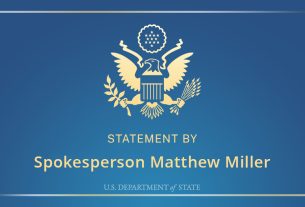The comment comparing Puerto Rico to an “island of garbage” made by a speaker at a Trump rally reflects a troubling pattern of rhetoric associated with the former president and his supporters. This type of language can be understood in several contexts, though it is often justified by political figures in ways that reveal deeper issues of bias, misunderstanding, or strategic messaging.
Context of the Comment
- Political Rhetoric: Political candidates sometimes use provocative language to evoke strong emotions or reactions. Such comments can be intended to rally their base by painting a picture of neglect or failure associated with political opponents, suggesting that certain regions or groups are mismanaged.
- Framing and Narrative: By framing Puerto Rico in a derogatory manner, the speaker may be attempting to perpetuate a narrative that portrays the island as a liability or burden to the mainland U.S., which aligns with a broader political strategy of prioritizing certain states or regions over others.
- Echoes of Past Comments: This comment aligns with previous remarks by Trump and his allies that have been criticized for being racially or culturally insensitive. For instance, Trump’s earlier comments about Puerto Rico’s recovery after Hurricane Maria were perceived as dismissive and lacking empathy. Such patterns suggest a consistent approach that dehumanizes or undermines communities that are often marginalized in political discourse.
Justifications and Reactions
- Defense of Free Speech: Supporters of the speaker may argue that such comments fall within the realm of free speech and are a reflection of political opinion rather than a direct attack on the people of Puerto Rico.
- Shifting Responsibility: The speaker might claim that the comment is intended to highlight issues of governance and responsibility, suggesting that local leadership is to blame for Puerto Rico’s struggles rather than attributing these issues to historical and systemic factors.
- Public Reaction: Such comments often provoke significant backlash, leading to discussions about racism, colonialism, and the treatment of U.S. territories. Critics may argue that such rhetoric is harmful, perpetuates stereotypes, and reflects a lack of understanding of the complex socio-political realities faced by Puerto Ricans.
Implications for Political Discourse
- Normalization of Offensive Language: Repeated exposure to derogatory comments can normalize offensive language in political discourse, making it more acceptable for candidates to express biases without consequence.
- Impact on Communities: Comments like these can contribute to a climate of discrimination and hostility toward specific communities, affecting how they are perceived and treated in policy-making and public opinion.
- Voter Mobilization: Such rhetoric can be strategically employed to energize a political base by invoking emotions of anger or disdain towards perceived out-groups, often at the expense of constructive dialogue.
Absolutely, it is deeply disturbing when a presidential aspirant uses derogatory language to describe countries or communities. Such comments not only reflect a lack of respect but also perpetuate harmful stereotypes and contribute to a culture of division and animosity.
Contextualizing the Language
- Historical Patterns: This is not an isolated incident. The reference to countries as “shitholes” and other derogatory terms reveals a consistent pattern of language that dehumanizes and marginalizes specific populations. It reflects an underlying worldview that dismisses entire nations and cultures based on preconceived biases.
- Impact on Political Discourse: Such language has the potential to normalize offensive rhetoric in political settings. When a figure as prominent as a presidential candidate uses this kind of language, it can embolden others to express similar sentiments, creating a toxic environment in public discourse.
- Implications for Governance: Leaders are often judged by their words. Derogatory comments can affect diplomatic relations, particularly with countries or communities that feel insulted or disrespected. This can hinder constructive dialogue and cooperation on important issues like trade, immigration, and disaster relief.
The Broader Impact
- Social Divisions: Language that perpetuates stereotypes can deepen social divisions and foster hostility among different communities. It can create an “us vs. them” mentality that undermines the potential for unity and collaboration.
- Responsibility of Leadership: Leaders are expected to set a tone for respectful and constructive dialogue. Using offensive language undermines that responsibility and sets a poor example for public discourse, particularly for younger generations.
- Public Reaction: These comments often elicit strong reactions, leading to calls for accountability. Public backlash against such language can mobilize advocacy efforts aimed at promoting more respectful and inclusive discourse in politics.
Conclusion
The use of derogatory language by a presidential aspirant, particularly when it comes to describing countries or communities, is not only disturbing but also has significant implications for political discourse and governance. It highlights the need for leaders to engage in respectful dialogue and to recognize the impact their words can have on society. Encouraging a more constructive and inclusive political environment is essential for fostering unity and understanding in an increasingly polarized world.
While supporters may attempt to justify derogatory comments about Puerto Rico as political rhetoric, the implications of such language are far-reaching. They reflect a broader pattern of dismissiveness and bias that can shape public perceptions and influence political dynamics. Understanding these comments within the larger context of Trump’s political strategy highlights the need for critical engagement with language used in political discourse and its effects on communities.



